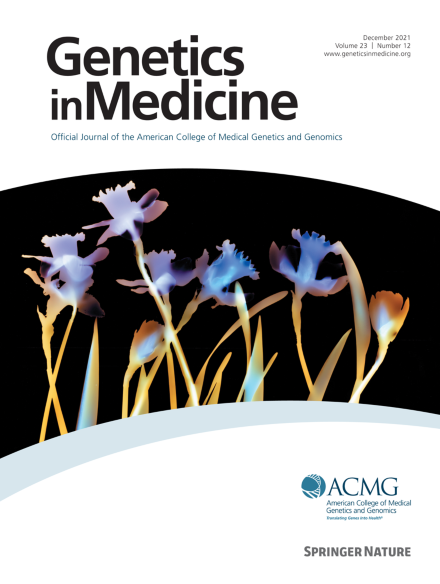未确诊患者转化基因组学研究的可持续性:什么是可持续性?我们为什么需要它?我们如何做到这一点?
IF 6.2
1区 医学
Q1 GENETICS & HEREDITY
引用次数: 0
摘要
目的:纳入未确诊患者的基因组学研究可以为三分之一的参与者提供答案,更多的参与者可以通过未来的再分析得到诊断。参与者的长期价值引发了对这些研究的“可持续性”的质疑,但可持续性的意义、目标和最佳实践仍不清楚。方法:我们对在美国和加拿大进行未确诊患者研究的研究人员进行了半结构化访谈,并利用主题内容分析来总结关键主题。结果:研究人员对“可持续性”的实际意图缺乏共识,变量参考研究程序、人员、数据访问和参与者再接触。然而,可持续性的主要驱动因素被广泛认为是继续为未确诊的参与者寻找答案的感知义务。拟议的可持续发展战略包括多样化的资金来源,开发集中的数据基础设施,以及建立跨学科和机构的合作。研究人员还强调需要解决伦理问题,将研究与临床护理结合起来,并需要研究资助者的领导来指导这些努力。结论:虽然基因组学研究人员认为对未确诊的参与者有持续的义务,但他们也缺乏对可持续性目标的共同理解,并呼吁协调努力发展集中的基础设施,将研究和临床护理结合起来。本文章由计算机程序翻译,如有差异,请以英文原文为准。
Sustainability in translational genomics research with undiagnosed patients: What is it, why do we need it, and how do we do it?
Purpose
Genomics research enrolling undiagnosed patients can provide answers for one-third of participants, and more can be diagnosed through future reanalysis. The long-term value for participants has raised questions of the sustainability of these studies, but the meaning, goals, and best practices for sustainability remain unclear.
Methods
We conducted semistructured interviews with researchers leading studies enrolling undiagnosed patients in the United States and Canada and used thematic content analysis to summarize key themes.
Results
Researchers lacked consensus regarding what sustainability was actually intended to sustain, variably referencing study procedures, personnel, data access, and participant recontact. However, the primary driver of sustainability was widely shared as the perceived obligation to continue to search for answers for undiagnosed participants. Proposed sustainability strategies included diversifying funding sources, developing centralized data infrastructure, and building collaborations across disciplines and institutions. Researchers also emphasized the need to address ethical concerns, to integrate research with clinical care, and for leadership from research funders to guide these efforts.
Conclusion
Although genomics researchers perceived continued obligations to undiagnosed participants, they also lacked a shared understanding of the goals of sustainability and called for coordinated efforts to develop centralized infrastructure that integrated research and clinical care.
求助全文
通过发布文献求助,成功后即可免费获取论文全文。
去求助
来源期刊

Genetics in Medicine
医学-遗传学
CiteScore
15.20
自引率
6.80%
发文量
857
审稿时长
1.3 weeks
期刊介绍:
Genetics in Medicine (GIM) is the official journal of the American College of Medical Genetics and Genomics. The journal''s mission is to enhance the knowledge, understanding, and practice of medical genetics and genomics through publications in clinical and laboratory genetics and genomics, including ethical, legal, and social issues as well as public health.
GIM encourages research that combats racism, includes diverse populations and is written by authors from diverse and underrepresented backgrounds.
 求助内容:
求助内容: 应助结果提醒方式:
应助结果提醒方式:


